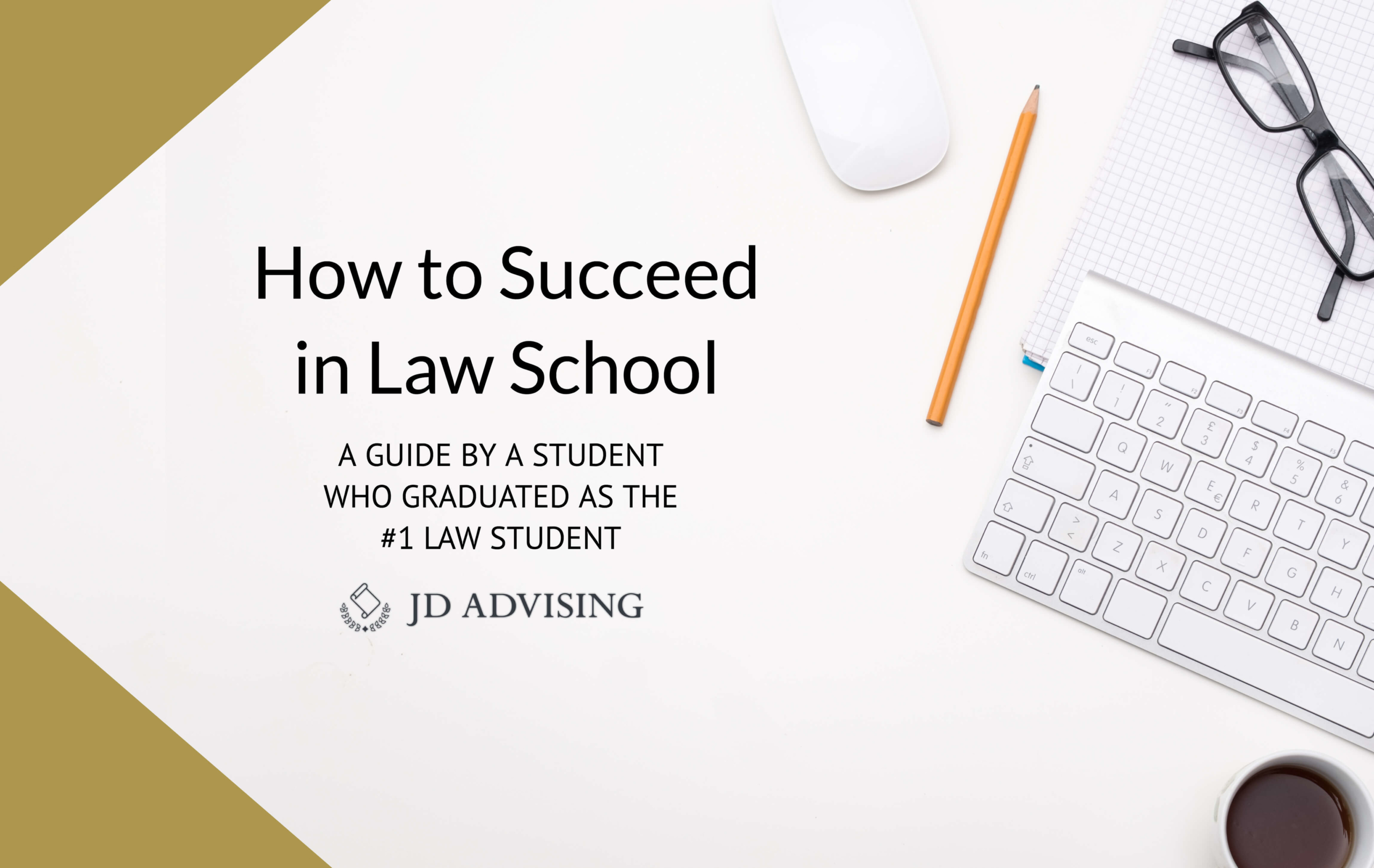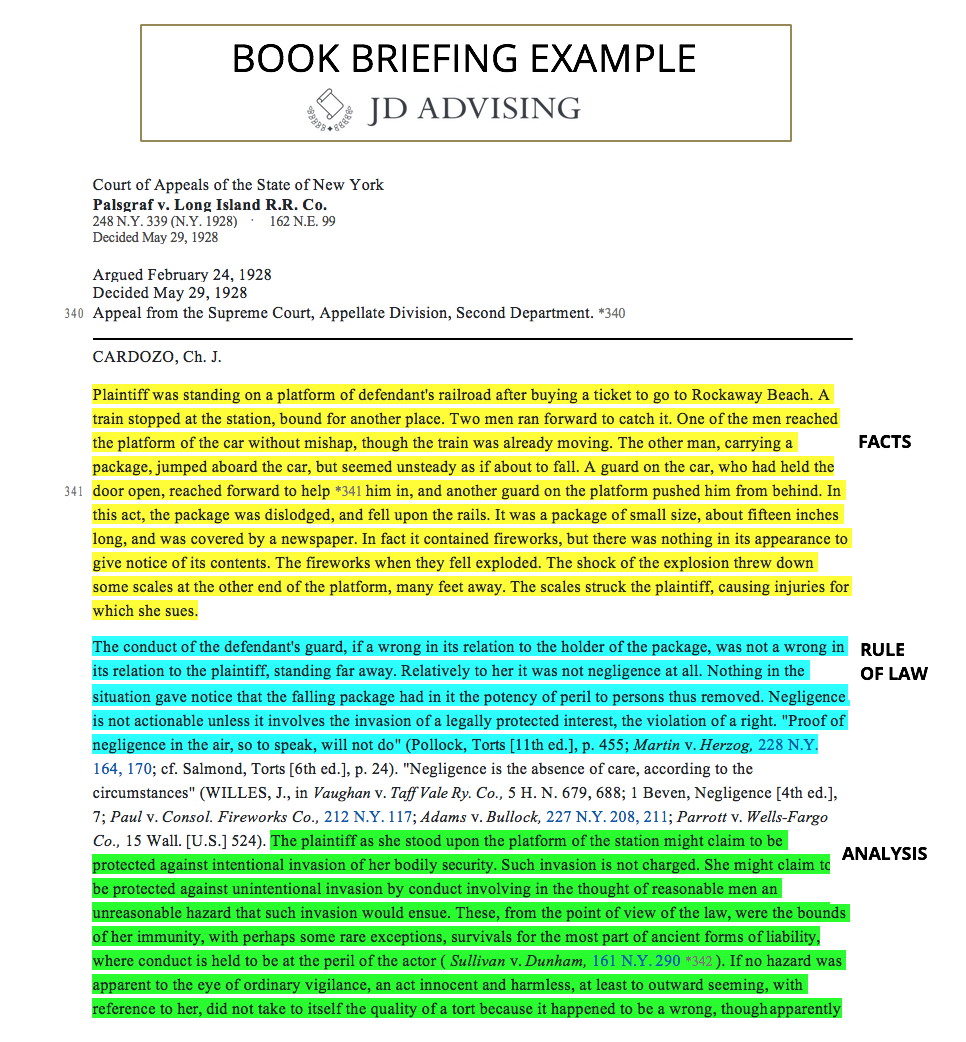How do I prepare for class in law school (without wasting time)?
How do I prepare for class in law school (without wasting time)?
Below, we discuss five steps to prepare for class in law school in the most efficient and effective way possible. Note that the goal of preparing for class in law school is to prepare effectively so that you can:
- Follow along in class
- Understand what the professor is saying
- Be able to answer questions if you are called on
However, there is such a thing as over preparing.
For example, some students will spend hours a day reading every word of every case assigned. Sometimes they also brief every case assigned and join study groups to discuss cases prior to class. They do a great job on call and can hold their own in discussions with the professor. However, while they may put on an impressive class performance, these students often do not graduate at the top of their class. They spend so much time preparing for class that they forget to prepare for the final exam! (That is, they neglect to outline and memorize the law!)
Here, our focus is on efficient class preparation so that you can prepare enough but also keep your eye on the prize—which is the final exam.
How do you prepare for class in law school?
1. Review the cases as close to class as possible.
Some students pre-read for their law school classes on the weekends. In general, while we understand that sometimes it is necessary to work ahead, we recommend against pre-reading for law school classes. There is so much reading assigned that you will likely forget a lot of what you read by the time you get to class. Then, you may find yourself rereading the cases again before class. This takes up even more of your valuable time!
It is better to review the cases as close to class as possible. So, we recommend reviewing them the night before class or the morning of class. That way, they will be fresh in your mind when your professor covers them in class.
2. Prior to reviewing the cases, review case briefs.
Close reading is critical. It is one of the hallmarks of being a good lawyer. But sometimes you will not have time to closely read every word of every case — and you still want to effectively prepare for class so that you can follow along, take good class notes, and answer questions if called on.
One way to seriously speed up your case reading is to read case briefs ahead of time. This way, you will know what the case is all about before you even start reading it. You will be able to read cases twice as fast.
We recommend getting Casenote Legal Briefs, keyed to your casebook author and edition. If no such briefs exist for your casebook, you can always resort to Google. This is a great way to save time, study efficiently, and make sure you are getting what you need out of the case.
3. When you are reviewing the cases, book brief them.
We are big fans of book briefing cases. That is, as you are going through the cases, write the rule, analysis, and holding in the margins of the casebook. An example of a book brief is below.
4. Pay close attention to how professors call on students and the kinds of questions they ask.
If you are nervous for being on call, pay attention to two things: how professors call on students, and what they ask students.
Some professors will call on students completely randomly, but there are a variety of systems professors use:
- Some professors take volunteers
- Some professors go up and down rows and call on students in order
- Some professors call on students alphabetically
- Some professors call on students randomly but if you are called on once, then you will not be called on again
Getting to know the system that your professor uses can ease anxiety and help you prepare effectively. If you know you will be on call, you can go crazy reading and re-reading every word of every case ahead of class. But, if you know that it is not likely you will be called on, you can spend your time more efficiently.
Also, pay attention to the kinds of questions professors ask. For example, some will focus on the minute details of the facts. Others will always ask, “What did the plaintiff argue? What did the defendant argue?” Some professors seem to barely care about cases and will instead ask questions about the law or hypothetical fact patterns they invent. Paying attention to the kinds of questions your professor asks can help you prepare for class in law school in a more effective manner.
5. If necessary, review a supplement ahead of time.
If the class is especially challenging or you are not seeing the bigger picture and how cases tie together, it may be helpful to review a supplement ahead of time. For example:
- You may want to review a book like Examples & Explanations, that has the law and practice problems in it.
- You may want to review notes or an outline from someone who took the class before you (this is especially helpful if you are worried you will be called on!).
Reviewing a supplement ahead of time is not always necessary, but it can make a big difference in your confidence and your understanding of the material! So, it is something to consider when you are preparing for class!
Feeling ready for class? Check out our law school note-taking tips and shortcuts here. These tell you how to work most effectively while you are in class!
Go to the next topic, What are some law school note-taking tips and shortcuts?
Seeking Success in Law School?
- Benefit from personalized one-on-one tutoring by our seasoned law school tutors.
- Explore our NEW and highly acclaimed law school study aids, available for a free trial.









Leave a Reply
Want to join the discussion?Feel free to contribute!